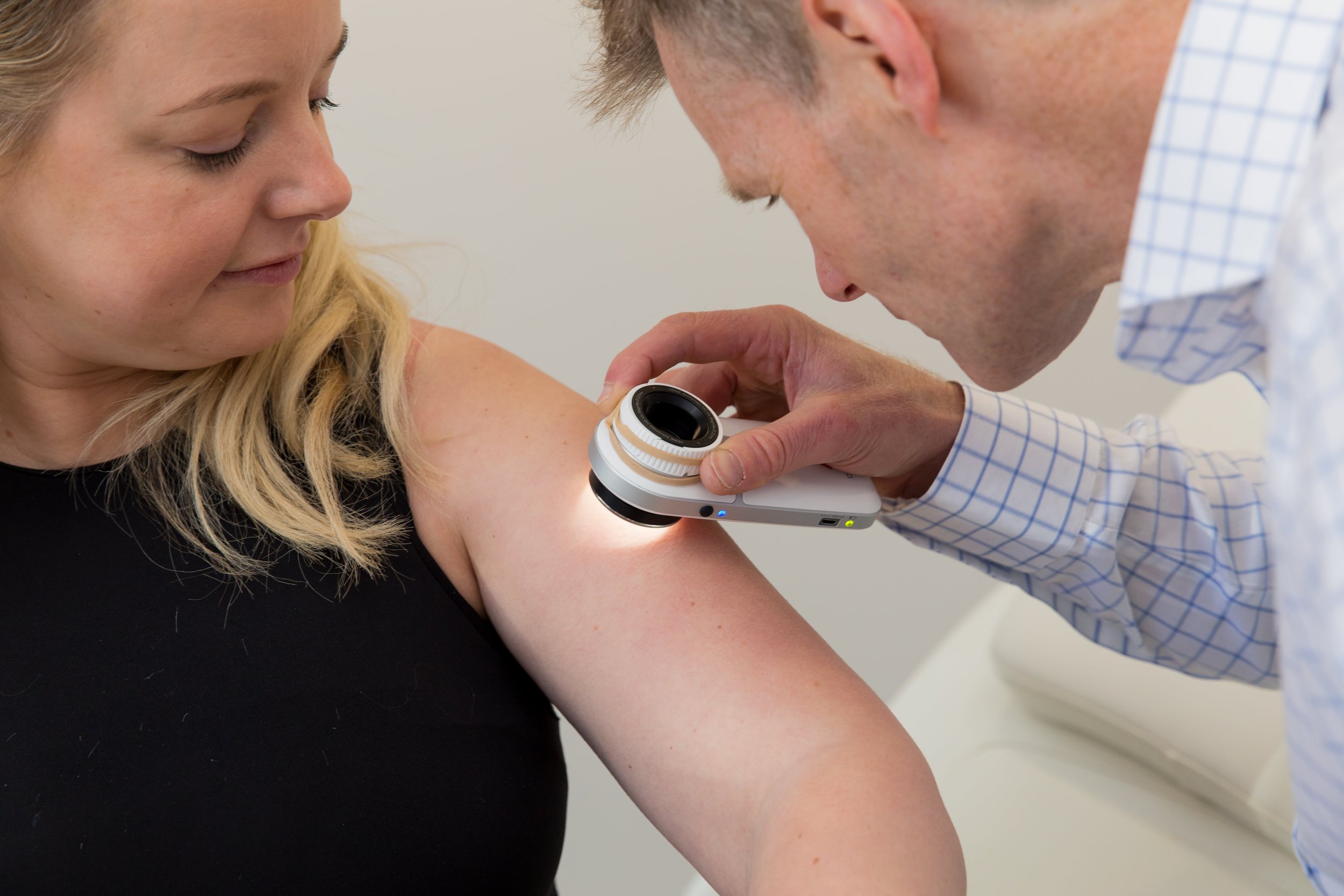Minor Skin Surgery
Many small skin lesions such as skin tags, keratoses, warts and benign (non-cancerous) moles can be assessed and treated in a single consultation. Depending on the anatomical site and size, removing lesions involves a small minor operation performed under local anaesthetic. If during your assessment the doctor identifies any suspicious lesions you will be advised how to have these checked.
Dr Guy Mitchell is an extremely experienced GP with Special Interest in Dermatology and performs all our minor surgery. See the FAQs below, or get in touch if you have a specific query. We are always happy to help!
TREATMENT AT A GLANCE
Procedure Time
30 minutes
Discomfort
Local anaesthetic used
Downtime
2-3 days
Results Seen
Immediate
Treatments Needed
1
Lasting
Usually lasts for good
FAQs
-
Your appointment will always involve a full history and examination of the lesion(s) in question. The doctor may use a dermatoscope (illuminated magnifier) to complete his assessment, and if appropriate, the procedure can often be performed immediately. If there is any diagnostic uncertainty, a skin biopsy may be undertaken to ensure safe and correct clinical management is planned.
-
A skin biopsy is the removal of a sample of skin as part of the diagnostic process. It is usually undertaken using a local anaesthetic injection into the skin to numb the area. The injection stings transiently. After the procedure, a suture or dressing may be applied to the site and the sample sent to the laboratory for histopathology testing.
-
How do I book? Please get in touch regarding your query via email or call Emma on 07930 114668 to book an appointment with Dr Mitchell.
-
There are a number of different approaches, depending on the type of lesion:
Curettage is mostly used for treatment of benign skin lesions. High cure rates and good cosmesis are routine for this quick, simple operation. It is usually performed with a hyfrecator which destroys tissue locally and can be used to stop minor bleeding. Precautions should be taken if you have an implanted device such as a pacemaker, defibrillator, deep brain stimulator or Cochlear implant.
Shave biopsy is the preferred method for solitary lesions that are raised or where pathology is confined to the epidermis. Wounds heal of their own accord and no sutures are required.
-
Skin biopsy is usually straightforward and complications are uncommon. As a general rule, the larger the skin sample removed, the higher the chance of complications. You will always undergo a full consent process, and have the opportunity to ask as many questions as you like
Bleeding/bruising can occur, especially in those with a bleeding tendency, or on blood-thinning medications such as warfarin or aspirin.
As with any surgical procedure, there is a risk of infection. However, this is low and bacterial wound infection affects <1% of superficial skin biopsies. Certain patient characteristics may increase the risk so a full medical history is important.
It is possible that a scar will persist after removal, especially on high-risks sites such as the anterior chest wall. Given the superficial nature of this type of surgery, nerve injury is very rare.
-
Most small benign lesions can be carried out in our Haslemere clinic. However, larger procedures may need to be undertaken at Pulborough Medical Group, where Dr Mitchell also operates.
What happens?
Removal of a skin lesion is a simple procedure that can be carried out under local anaesthetic and with minimal downtime. This short video gives you an idea of what to expect!








